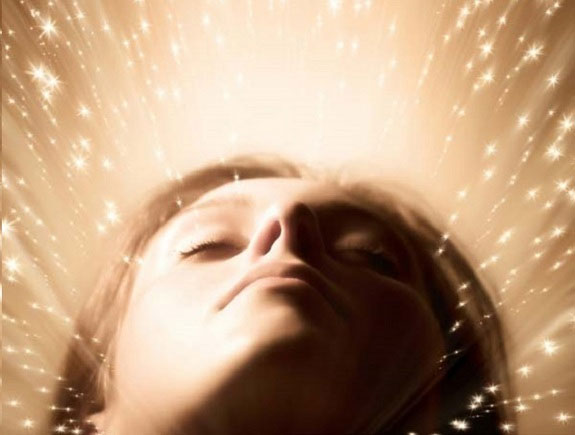Why do people remember what they dreamed, someone else?
Some people often remember clearly what happened in the dream, while others did not remember anything. Research shows that people who remember the dream often react more strongly when they hear someone calling their name at waking.
People often dream during sleep, but not everyone remembers these dreams the next day. Until now, scientists are still not sure why some people remember, some people do not remember. To find out, the researchers used electroencephalography to record the activities in the brain of 36 people. These measures of brain measurement are performed both awake and sleep. Half of the participants remember and reported very clearly what they dreamed every day, while the other half said they only remembered a few dreams.
While sleeping, both groups showed similar changes in brain activity when they heard someone calling their name, often a very quiet call was not enough to wake them up.

However, when waking up, the brain waves of the group of people who clearly remember the dream are much more negligent than the group of people who don't remember the dream when they heard their name. The researchers call this brainwave alpha waves .
"We were really surprised at the difference between the reactions of these two groups when they woke up," said researcher Perrine Ruby, neurologist at Lyon's Neuroscience Research Center in France. .
This difference may reflect changes in the brains of two groups of people, and it may have some role in how they dream, Ruby said.
Historically, it has been hypothesized that a decrease in alpha waves is a sign that areas of the brain are inhibited with external stimuli. Studies show that when people hear a sudden sound or when they open their eyes, brain areas become active.
In the study, both groups showed a decrease in alpha waves when they heard their names during waking. But people who remember well the dream of a longer decline, and that may be their brain signal is more active when they hear their names.
In other words, people who remember clearly dreams may have more areas of the brain involved when handling the waking sounds . While everyone sleeps, alpha waves work in the opposite way - meaning they work harder when they hear a sudden sound. Scientists are still not sure why it is, but there is an idea that it protects the brain from being disturbed by the sound of sleep.

In fact, the study participants showed that alpha waves increase when responding to the sounds at sleep, and there is no difference between groups.
Researchers also found that people who remember well the dream tend to wake up more often during the night. On average, one night they woke up for 30 minutes (insomnia), while those who had little memory of their waking dreams 14 minutes a night. However, Ruby said: "both numbers are in the normal range, and there are no problems with both groups."
Finally, the research results show that the brains of those who clearly remember dreams can react more strongly to stimuli like sound, making them more awake. It is also possible that someone will remember their dreams more clearly if they are suddenly awakened.
However, waking up at night may be just a small reason to explain the difference of the two groups of people, remembering and not remembering dreams.
This study was published in Frontiers magazine specializing in psychology. And do you remember what you dreamed about last night?
Reference: Livescience.
- The reason we remember dreams after waking up
- What happened when you tried to remember ...
- Gene also decides the ability to remember people's faces
- Can take pictures past?
- 5 things people with diabetes must remember in the summer
- 4 things to remember before jumping down to save drowning people
- People are able to remember every detail of life
- Sleep helps people be smarter
- Women remember better than men
- How do we remember memories?
- Video: Syndrome makes some people remember like printing stories of the past
- Bad things always remember longer than good
 'Fine laughs' - Scary and painful torture in ancient times
'Fine laughs' - Scary and painful torture in ancient times The sequence of numbers 142857 of the Egyptian pyramids is known as the strangest number in the world - Why?
The sequence of numbers 142857 of the Egyptian pyramids is known as the strangest number in the world - Why? History of the iron
History of the iron What is alum?
What is alum?